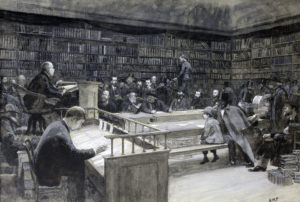
Whether you think it’s a fad, a “hack,” the new standard, or the latest shiny object, header bidding has had a significant and disruptive impact on the advertising technology ecosystem. It may only be a matter of time before Luma Partners adds header bidding wrappers as a new box to their (in)famous landscapes.
The promise of header bidding with multiple exchanges has yielded positive results for advertisers and publishers but it has come with a cost that, over time, might be too much to bear. Whether it survives the fray, or evolves into something new, header bidding has changed the game forever.
Header Bidding: The Good
The movie stars Clint Eastwood. As The Good guy, he is not necessarily altruistic in nature, but he’s really good at capitalizing on opportunities.
Header Bidding brings those opportunities by providing premium inventory into the programmatic marketplace. No longer are the best impressions locked away in the tower of publisher ad servers. They are now accessible via the myriad of sophisticated Seller-Side Platform (SSP), Exchange and Demand-Side Platform (DSP) technologies. This gives sellers more articulate controls over the rules of engagement for every transaction.
Retargeting, made easier by RTB, can now be applied at all inventory priority levels, improving yield for commerce sites. Elusive audiences could be more readily captured by private marketplaces and the open auction, inviting new advertisers to test, refine, and commit to new deals with new partners.
Meanwhile, demand side systems are given the opportunity to bring more premium buying contracts to their platforms. This could be why some publishers started seeing higher revenue with header bidding in play. During Advertising Week in New York, one publisher cited header bidding as being responsible for 50% lift in CPMs. These types of statistics have been echoed by several others in the industry. While this might not be the panacea that saves the online newspaper, it certainly helps keep a few more lights on.
Next: The Bad




 The answer is: sometimes. Exchanges sometimes express floor or bid guidance in the bid request. This is not required for the market to operate; so many exchanges do not provide any guidance. Floors are almost always in play. In most cases they are dependent on a wide variety of variables including: the site, browser, device, day of week, time of day, audience data, user’s language, and geographic location of the user.
The answer is: sometimes. Exchanges sometimes express floor or bid guidance in the bid request. This is not required for the market to operate; so many exchanges do not provide any guidance. Floors are almost always in play. In most cases they are dependent on a wide variety of variables including: the site, browser, device, day of week, time of day, audience data, user’s language, and geographic location of the user.

